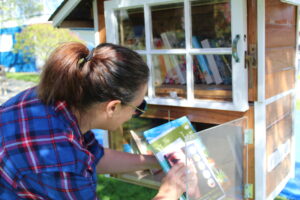For our March and April #GetKind theme of Education, we want to direct our attention to the topic of literacy. In a basic sense, literacy is the ability to read and write. Literacy is essential, and today, possibly more than ever, it is connected to many parts of our day-to-day life. In this post, we will point out some places where literacy skills are needed and why they are vital.
It All Starts with Education
According to the UNESCO Institute of Lifelong Learning, many learners around the world do not have access to education in a language they speak or understand. Access and a future where diversity is not a cause for exclusion are goals we should aim to achieve.
“Literacy from a multilingual and multicultural perspective should be seen and dealt with as an essential aspect of the human right to education.”
The Inter-Parliamentary Union & United Nations Human Rights Office of the High Commission expressed that eliminating illiteracy needs to occur where people are trying to improve and ensure access to human rights. Taking steps to decrease illiteracy plays a major role in providing either equal or equitable treatment. We should all be working towards an equitable and literate world.
Literacy Affects All Aspects of Your Life
M. Cecil Smith explains that occupational roles, even if they do not require advanced reading and writing, demand that people evaluate information. Furthermore, employees need to communicate effectively with co-workers and customers. Many people also need to learn specialized vocabulary and concepts. According to Sharon Weiner, literacy affects feelings of inclusion in the workplace. She adds that we need to be aware of how differences in literacy affect those around us.
In a world where technological advancements are being made every day, it is essential to be able to communicate through print and non-print texts. eHealth literacy is important for using the Internet as a health information tool. Easily accessible tools to improve eHealth literacy would support people who use the tools to further their healthcare needs. However, “Media literacy” is something that is becoming increasingly important as well.
Relationships and Disability
Engagement in literacy-based activities at home can improve the development of complex communication skills in children. Those skills are useful for expressing needs, feelings, and ideas.
In addition, teacher Donna Skolnick observed how the relationships between students, teachers, and the reading-writing curriculum affect literacy learning. Providing access to these tools makes great acts of kindness. Some of our staff have even done Kindness Acts centered around improving literacy in their local communities.
Ann M. Forts and Ruth Luckasson explain that people with an intellectual disability are often denied opportunities to develop literacy. When opportunities to develop literacy are offered, persons with disabilities become more likely to experience feelings of inclusion and to develop valuable friendships. Everyone wants to feel included and valued, and literacy is one way to help people.


